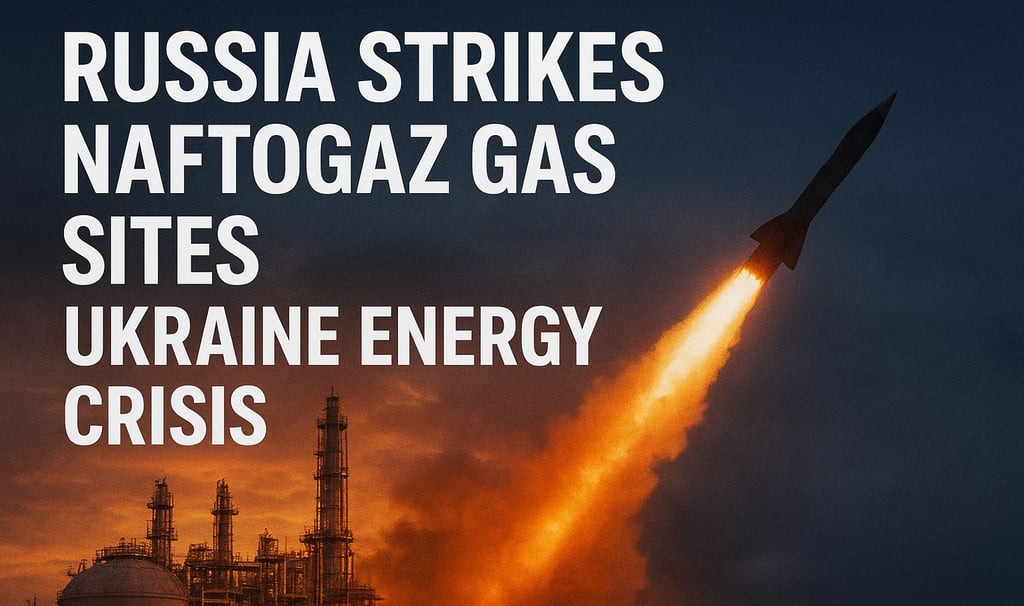Russia Attacks Ukraine’s Naftogaz Gas Sites | Energy Crisis Looms – 3 October 2025
Russia launches its largest strike on Naftogaz, crippling Ukraine’s energy sites. Full 3 Oct 2025 details, reactions, and global impact explained.
Raja Awais Ali
10/3/20252 min read


Russia Strikes Naftogaz Gas Infrastructure, Ukraine Warns of Energy Crisis
On October 3, 2025, Russian forces carried out the largest attack since the start of the war on Ukraine’s state-owned energy company Naftogaz, targeting its gas production and processing facilities. According to company officials, infrastructure in the Kharkiv and Poltava regions was hit by 35 missiles and 60 drones, including ballistic weapons. While Ukraine’s air defense systems intercepted several, many strikes caused severe damage to critical energy sites.
Naftogaz CEO Sergii Koretskyi condemned the assault, stating it had no military purpose but was instead aimed at crippling Ukraine’s civilian energy infrastructure. “This is an act of terror designed to damage the electricity and gas system and leave people without heating in the winter,” he said.
Ukraine’s Air Force reported that Russia deployed a total of 381 drones and 35 missiles in this operation, mostly targeting energy facilities. The attack resulted in widespread power outages across multiple regions, leaving thousands of civilians without electricity and heating.
The Ukrainian government warned that such large-scale strikes, coming just before the harsh winter months, would deepen the country’s ongoing energy crisis. Naftogaz had recently secured a €300 million loan from the European Investment Bank to purchase gas reserves for winter, but the extensive damage now threatens those preparations.
The Russian Defense Ministry defended the strikes, claiming they targeted Ukraine’s “military industrial sites” and related energy facilities, which it said were being used for war efforts. In contrast, Ukrainian President Volodymyr Zelenskyy condemned the attack as a violation of international law and a clear war crime. He argued that Russia was deliberately weaponizing energy against civilians and warned that the consequences could extend far beyond Ukraine.
“These attacks are not only against Ukraine but also against global energy security,” Zelenskyy said, urging the international community to increase pressure on Russia and assist Ukraine in protecting its energy infrastructure. He further warned that millions of Ukrainians could be left without heating and gas during sub-zero winter temperatures, creating a humanitarian catastrophe.
International experts believe this escalation highlights a dangerous new phase of the Russia–Ukraine conflict, where energy infrastructure is increasingly being used as a strategic weapon. Analysts caution that the damage may not only destabilize Ukraine’s domestic energy supply but also have a ripple effect across Europe, potentially driving up energy prices and straining the global economy.
As the war enters another winter season, global attention is fixed on how the international community will respond. Calls are growing louder for tougher sanctions on Russia and increased support for Ukraine’s defense systems. The attack on Naftogaz may mark a turning point, showing that energy warfare could shape the next phase of this conflict and determine both military and humanitarian outcomes.
Stay informed with the latest national and international news.
© 2025. All rights reserved.